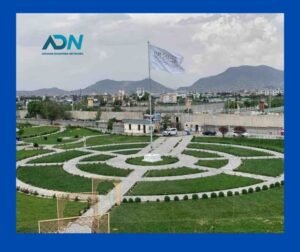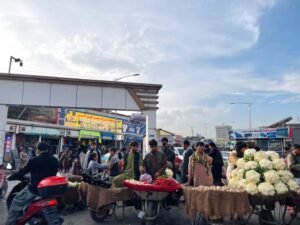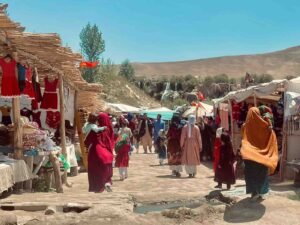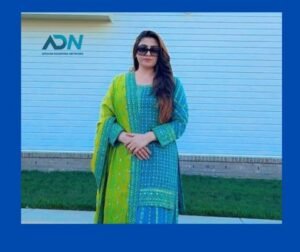How Saffron Coffee Brings Afghanistan’s Flavor to Vienna
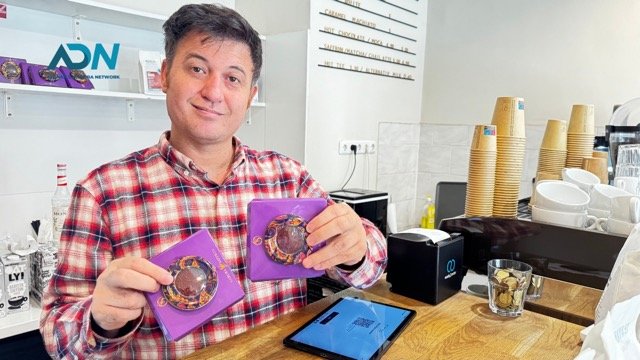
Shekib Mortazawi shares Afghan saffron and culture from behind the counter of his Vienna café. Photo: @Ali Ahmad for ADN
ADN
Vienna’s 9th district isn’t short on coffee shops—but none smell quite like this one. Here, espresso meets saffron, and tradition meets innovation. At Kaffee Kultur, founder Shekib Mortazawi turns Afghanistan’s golden spice into a bridge between cultures, serving lattes infused with memory, identity, and quiet pride.
“I came to Austria ten years ago,” Mortazawi says, sitting at one of the wooden tables in his café. “Four years ago, I started my business—coffee and saffron. In Iran and Afghanistan, saffron is part of our daily lives. People use it in rice, in sweets, in tea. I wanted to bring that tradition to Vienna’s coffee culture. That’s how the Saffron Latte was born.”
The drink—warm milk, espresso, and a delicate thread of saffron—has become a quiet sensation among his regulars. “Once customers try it, they often come again,” he smiles. “It’s something new for Vienna, but it also feels comforting.”
A Golden Twist in Vienna’s Coffee Scene
Vienna’s coffeehouses are legendary, woven into the city’s identity for centuries. But what Mortazawi offers is something distinctly different—a golden twist on tradition.
“Saffron has a special taste and many health benefits,” he explains. “It’s good for memory, for beauty, for the brain, for diet. It helps you feel calm. In some ways, it’s better than coffee itself.”
Every strand of saffron in his café comes directly from Herat, a region in western Afghanistan renowned for its high-quality spice.
“I order it straight from Afghanistan,” Mortazawi says proudly. “When I tell customers that, they’re surprised. They say, ‘Oh, Afghanistan has saffron?’ People don’t expect that. They usually hear only negative stories.”
For Mortazawi, each cup is a small act of storytelling. “What I do is not big,” he says. “But even if I can do something small to influence people’s perception of Afghanistan, it’s already a big achievement. When someone tastes saffron and learns it’s from Afghanistan, they start to see that our country has beauty, has culture, has something positive to offer.”
The surprise often turns to curiosity—and then to conversation. “They ask questions: Where does it come from? How is it grown? I tell them about Afghan farmers, about Herat, about our food and traditions. Sometimes they want to try Afghan dishes after that. It opens a door.”
Connecting Cultures Through Coffee
Mortazawi named his café Kaffee Kultur as both a tribute and a bridge. “Austria has a strong coffee culture,” he says. “That’s why I called it that—to connect Austrian coffee traditions with Afghan flavors. Coffee brings people together, and I want saffron to do the same.”
Most of his regulars are students and young professionals who come not only for caffeine but for conversation. Few Afghans live in the neighborhood, but that’s intentional. “My goal is to serve the host society,” Mortazawi explains.
“I want to introduce Afghan culture to Austrians through saffron. This is my way of contributing, of saying thank you to this country.”
He dreams of expanding the concept beyond his own café. “I want to see saffron in other coffee shops,” he says. “It’s natural, it’s healthy, and it helps people relax. Maybe one day, saffron coffee can become part of Vienna’s culture too.”
For now, Mortazawi continues his work quietly, brewing saffron lattes and conversations in equal measure. His café, with its blend of Afghan warmth and Viennese charm, has become more than a business—it’s a cultural meeting point, a small reminder that change can start with something as simple as a shared drink.
“In every cup,” he says softly, “there’s a piece of home. And maybe, a small way to change how people see Afghanistan.”

